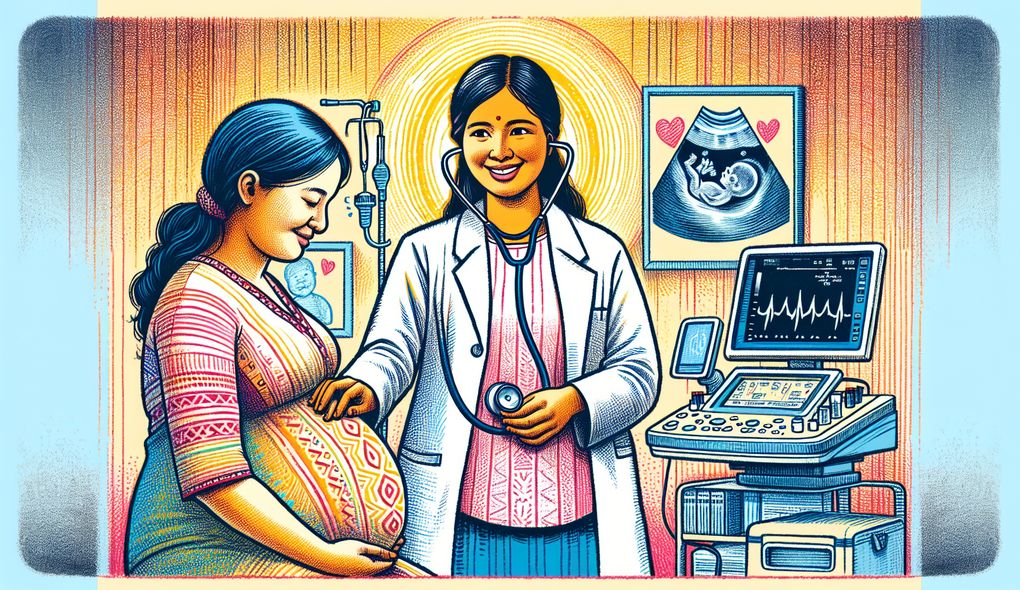How do you educate patients and their families about potential risks and outcomes?
INTERMEDIATE LEVEL

Sample answer to the question:
As a Maternal-Fetal Medicine Specialist, I educate patients and their families about potential risks and outcomes by providing clear and concise information. I explain the specific risks associated with their condition or situation, using layman's terms to ensure understanding. I also discuss the possible outcomes and the likelihood of each outcome. To enhance their understanding, I use visual aids such as diagrams and models. Additionally, I answer any questions they may have and address their concerns. It is important to establish a rapport with patients and their families, so I make sure to create a comfortable and open environment for discussion. I also provide written materials and resources for them to reference later.
Here is a more solid answer:
As a Maternal-Fetal Medicine Specialist, I strongly believe in the importance of patient education and ensuring that patients and their families have a clear understanding of potential risks and outcomes. When discussing risks, I tailor my explanations to the individual patient, using language that is easily understandable and avoiding medical jargon. I provide specific examples and use visual aids, such as diagrams and models, to help illustrate complex concepts. I also encourage patients and their families to ask questions and address any concerns they may have. Additionally, I provide written materials, such as pamphlets or online resources, for patients to review at their convenience. By taking a collaborative approach and actively involving patients and their families in the education process, I aim to empower them to make informed decisions about their healthcare.
Why is this a more solid answer?
The solid answer provides more specific details and examples to demonstrate the candidate's skills and experience in patient education. It emphasizes the importance of tailoring explanations to individual patients, using visual aids, and actively involving patients and their families in the education process. However, it could still benefit from further elaboration on the candidate's experience in addressing patient concerns and providing written materials.
An example of a exceptional answer:
Educating patients and their families about potential risks and outcomes is a crucial aspect of my role as a Maternal-Fetal Medicine Specialist. I approach this task with empathy, cultural sensitivity, and the goal of fostering open communication. I start by assessing the patient's and family's existing knowledge and understanding, and then build upon that foundation. I explain the potential risks in detail, including the factors that contribute to those risks and the likelihood of each outcome. I take the time to listen to their questions, concerns, and preferences, and provide honest and transparent answers. Additionally, I offer written materials tailored to their specific situation, which they can refer to for further information. I understand that discussing potential risks can be distressing, so I make sure to create a supportive and compassionate environment throughout the education process.
Why is this an exceptional answer?
The exceptional answer demonstrates a high level of empathy, cultural sensitivity, and communication skills. It highlights the candidate's approach of assessing the patient's and family's existing knowledge and understanding, tailoring explanations to their specific situation, and actively listening to their questions and concerns. The answer also emphasizes the importance of creating a supportive and compassionate environment during the education process. Overall, it provides a comprehensive and thoughtful response to the question.
How to prepare for this question:
- Familiarize yourself with the potential risks and outcomes associated with high-risk pregnancies. Stay updated on the latest research and guidelines in maternal-fetal medicine.
- Practice explaining complex medical concepts in simple and understandable language. Use visual aids, such as diagrams or models, to enhance understanding.
- Develop strong active listening and empathy skills to effectively address patient concerns and provide emotional support.
- Create or gather educational materials, such as pamphlets or online resources, that are tailored to different patient populations and specific conditions.
What are interviewers evaluating with this question?
- Communication Skills
- Patient Education

